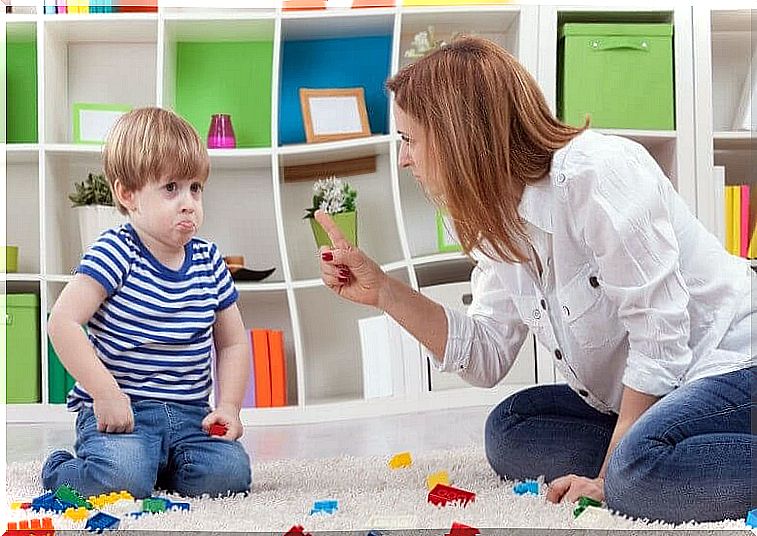Teach Children To Accept A No

We have all felt the heavy feeling that follows after not reaching a goal or if things do not go the way we want. If adults have a hard time dealing with it, just think about what happens to children. Teaching children to accept a no helps them later in life.

Low frustration tolerance
Low frustration tolerance is an important concept when teaching children to accept a no. Frustration includes a whole group of emotions such as sadness, disappointment and anger, which result from not getting what you want. Why are some people better at dealing with these emotions? In most cases due to their previous experience.
Children with low frustration tolerance have not been taught clear and concise rules and boundaries. They have always got what they wanted almost instantly. They have not experienced any failures or limitations.
Deep down, these are insecure children with low self-esteem, because you have to face difficulties to be able to create a positive image of yourself.
Children with low frustration tolerance
- Have difficulty controlling their emotions.
- Are impatient and impulsive.
- Can show anxiety at a level that is unusual for their age, especially in conflict-filled situations.
- Are self-centered. They believe that the world revolves around them and that they deserve everything. They think that all borders are unfair.
- Is demanding and wants to have their needs met immediately. If they do not get it, they get an outburst of rage.
- Are inflexible. They have difficulty adapting to change.

How to teach children to accept a no
do not overdo it
With good intentions, many parents try to keep their children away from all forms of disappointment. They try to protect them from all frustration and pain. They feel that they will be exposed to it enough when they are adults, and want them to enjoy their childhood for as long as possible.
Thus, they try to solve the slightest problem or obstacle that their children may encounter. They carry their backpacks, do their homework and give them everything they want.
However, keep in mind that your child will eventually grow up and that you will not be there forever. The best thing you can do is teach them how to accept a no – teach them to deal with their own frustration and see it as a part of life.
If you are always there to fix everything for them, they will not learn how to deal with difficulties.
Encourage their independence and teach them to accept a no
Through our own experiences, we begin to shape our own selves. Therefore, try to encourage them to be independent in all occupations appropriate to their age.
Children who have had to face challenges from an early age and know how to handle them develop a better ability to solve problems. They also get a better idea of themselves and enough self-confidence to deal with their own problems.
Teach them not to be afraid of failure
Sometimes it is most difficult to accept a no when you do not get what you hoped for or feel unsuccessful. Children must experience that mistakes are part of learning and not being afraid to try new things.

Do not give in to outbursts of rage
Teaching your children to accept a no is the greatest gift you can give them. Do not give up if they do not accept it right away, whether they are screaming and raging. Of course, do not give in, it will only reinforce their behavior.
Have patience and empathy without giving in. This is their way of showing their frustration and over time they will learn to express themselves better.
Talk to your children to teach them how to accept a no
When you deny them something, it should not be just because you say so. Talk to them, explain why they can not always get what they want. You may think they do not understand, but they will realize that their parents are making an effort and are fair and caring.
In addition, it is always so much better and easier to accept a no if it is followed for a good reason. They will not hold it against you after thinking for a while.









